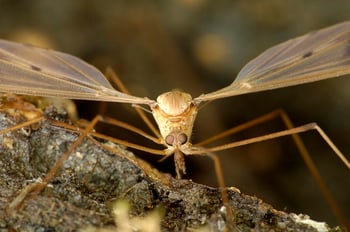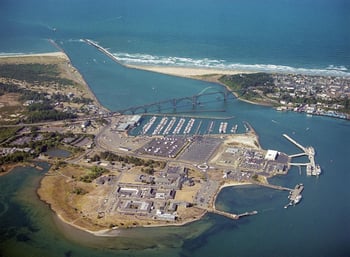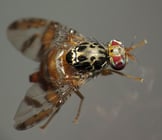One of the most pressing pursuits in bioscience is increasing agricultural production. The Food and Agriculture Organization estimates that, as a planet, we need to produce 70 percent more food by the year 2050 in order to keep up with increasing population. We have already shone our spotlight on several university research teams who are tackling this problem, like the UW team attempting to increase flowering rates and the UIUC team who spliced algae genes to increase photosynthesis. Now we look to Washington University in St. Louis for some novel ideas about optimizing photosynthesis.
Read MoreTags: WashU, Washington University in St. Louis, 2015, BioResearch Product Faire Event, MO, St Louis
 Like any living organism, cancer cells rely on fuel in order to survive and grow. Unfortunately for many, the growth of cancer cells is extremely deleterious to human health. That is why a major facet of cancer research currently involves locating and preventing the mechanism for fueling cancer cells.
Like any living organism, cancer cells rely on fuel in order to survive and grow. Unfortunately for many, the growth of cancer cells is extremely deleterious to human health. That is why a major facet of cancer research currently involves locating and preventing the mechanism for fueling cancer cells.
Tags: CA, University of California Los Angeles, cancer research, California, Los Angeles, Cancer Treatment, 2015, LAVS, UCLA, Research Funding, Life Science, Biotechnology Vendor Showcase, Southwest Region, Prostate cancer
 West Nile Virus is a debilitating disease that is spread by the bite of an infected mosquito. Much like victims of malaria, and other mosquito-born pathogens, those affected by West Nile virus are at risk for serious illness or even death.
West Nile Virus is a debilitating disease that is spread by the bite of an infected mosquito. Much like victims of malaria, and other mosquito-born pathogens, those affected by West Nile virus are at risk for serious illness or even death.
Tags: Bioresearch, Oregon Health and Science University, vaccine research, infectious diseases, Oregon, 2015, disease research, Research Funding, NIH, OR, OHSU, Portland, NIH funding, Northwest Region, NIH grants, BioResearch Product Faire™
Two years ago, we told the story of a University of Illinois researcher who discovered a potentially potent tuberculosis treatment in the form of bacteria found at the bottom of the sea. We now turn our attention to Michigan State University, where bioresearchers are using a well-known glaucoma treatment to shut down even the most drug-resistant strains of tuberculosis.
Read MoreTags: Michigan State University, 2015, BioResearch Product Faire Event, MI, East Lansing, MSU
 Breast cancer is one of the most common forms cancer, with about 230,000 new cases in women and 2,300 new cases in men diagnosed each year. Many researchers around the world are dedicated to studying breast cancer, to find new treatment methods and gain better understandings of how this cancer is caused, how it grows, and how it can be stopped. Research ranges from trying to starve breast cancer tumors to studying how specific proteins are involved with the cancer.
Breast cancer is one of the most common forms cancer, with about 230,000 new cases in women and 2,300 new cases in men diagnosed each year. Many researchers around the world are dedicated to studying breast cancer, to find new treatment methods and gain better understandings of how this cancer is caused, how it grows, and how it can be stopped. Research ranges from trying to starve breast cancer tumors to studying how specific proteins are involved with the cancer.
Tags: Midwest, University of Cincinnati, breast cancer, 2015, BioResearch Product Faire Event, Cincinnati, OH, UCinci, MED1, HER2
 Scientists at Oregon State University’s Hatfield Marine Science Center in Newport, Oregon will be stretching their legs a bit more in 2018, thanks to $24.8 million in recently approved state bonding.
Scientists at Oregon State University’s Hatfield Marine Science Center in Newport, Oregon will be stretching their legs a bit more in 2018, thanks to $24.8 million in recently approved state bonding.
Tags: Oregon State University, Oregon, biomarine research, Marine Biology, 2015, marine biology research, BioResearch Product Faire Event, Research Funding, marine science, OR, Northwest Region, OSU, new building expansion, ORSTU
Breast cancer is a complex problem that researchers all over the nation have been attempting to solve with varying methods. We saw five University of Cincinnati researchers last year who all won grants for contributions to the field, and spotlighted an Ohio State University team who worked on reversing breast tumor growth only a few months ago. A new study from the University of Wisconsin, Madison, suggests that our diet may be an understudied factor when it comes to fighting breast cancer tumor development.
Read MoreTags: WI, University of Wisconsin Madison, UWiscRP, UWisc, 2015, BioResearch Product Faire Event, Madison
 Millions of people suffer from allergies nationwide, (up to 30% of Americans, according to the Center for Disease Control), but for most, a healthy immune system and a course of antihistamines is all that is needed for a little relief.
Millions of people suffer from allergies nationwide, (up to 30% of Americans, according to the Center for Disease Control), but for most, a healthy immune system and a course of antihistamines is all that is needed for a little relief.
For others, however, diseases that complicate and degrade the immune system make every microbe and bacteria a potentially fatal nightmare. In recent years, people suffering from immune deficiencies have found some home in stem-cell transplants and other therapies, but their hope is tempered by inherent toxicities and associated side effects.
Read MoreTags: Fred Hutchinson Cancer Research Center, Washington, immunotherapy, Stem cell research, WA, NIH funded Research Projects, Immune System, grants, 2015, BioResearch Product Faire Event, Research Funding, Stem Cell, Seattle, Northwest Region, Hutch, Fred Hutch
 When dieting or eating foods with artificial sweeteners, many people do not get the feeling of being full that they get when eating foods with real sugars. But how can we distinguish between between these two sweeteners, to feel full or not?
When dieting or eating foods with artificial sweeteners, many people do not get the feeling of being full that they get when eating foods with real sugars. But how can we distinguish between between these two sweeteners, to feel full or not?
Tags: University of Michigan, Midwest, 2015, Ann Arbor, BioResearch Product Faire Event, MI, UMich, Neurons, Artificial Sweetener, Fruit Fly, Sugar
Parkinson’s disease and other tremor-causing dysfunctions can be debilitating. Researchers at the University of Minnesota, Twin Cities have developed a treatment that in most cases completely restores motor activity to patients.
Read MoreTags: University of Minnesota Twin Cities, Twin Citites, 2015, BioResearch Product Faire Event, MN, UMinn

